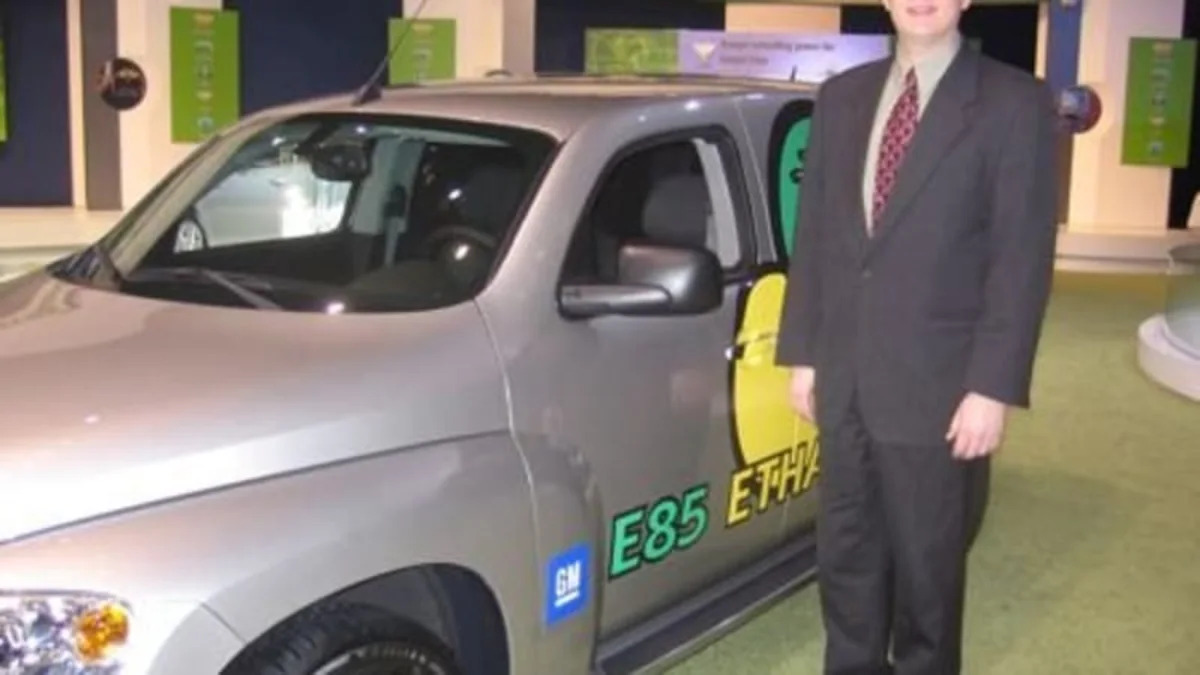To get a little more information out of Coskata about this morning's announcement of a partnership with ICM to build the first commercial cellulosic ethanol plant using Coskata's proprietary process (past details on Coskata are here), we tracked down Wes Bolsen, chief marketing officer, business development at the company. Bolsen was an executive at ICM in his previous life, so he is very familiar with what ICM is all about (for now, this is building a lot of corn ethanol plants in the U.S.) and why the company is a good fit for Coskata.
Bolsen said that ICM, like the rest of the ethanol industry, knows that corn ethanol's days are numbered and that cellulosic
biofuel is the way to go.
After doing their homework, ICM decided that Coskata had the right process to move to commercialization with. Wes said that the relatively small footprint of a cellulosic ethanol plant - about 20 acres - will mean these plants have the potential to pop up all over the world, wherever there is some feedstock (like the municipal waste) and space. While the Coskata process can handle a lot of different kinds of input material, each plant would likely be built to handle only one type. Therefore, the design that is best suited for paper mill waste could be built next to a paper mill whereas a plant that works well with corn stork or corn fiber could be erected alongside a currently-operating corn ethanol plant.
Now for the unknowns: the location of this first plant has not yet been announced, nor what type of feedstock it will use. Exactly when it will be finished is also uncertain, but late 2010 or early 2011 is the target. The hope is to then have two more plants running by late 2011 or early 2012 and expanding from there to the point where Coskata is responsible for producing billions of gallons of cellulosic ethanol to the market every year. We'll keep watching.
You can listen to my chat with Wes here (5.3 MB, 11 min).
UPDATE: As Wes said in the comments below, he's taking issue with my characterization of what he said about the future of corn ethanol, the struck-out above. I didn't mean to give the wrong impression of what he said, so I'm going to explain why I wrote what I wrote. Wes said that ICM considers itself at the forefront of the ethanol industry, especially corn-based ethanol. But, when I asked about the move to cellulosic ethanol and away from corn, Wes said that, "At some point, everyone knows that that will stop." That's where my characterization came from. You can hear it at minute three of the audio clip. You can read Wes' clarification below.
Now for the unknowns: the location of this first plant has not yet been announced, nor what type of feedstock it will use. Exactly when it will be finished is also uncertain, but late 2010 or early 2011 is the target. The hope is to then have two more plants running by late 2011 or early 2012 and expanding from there to the point where Coskata is responsible for producing billions of gallons of cellulosic ethanol to the market every year. We'll keep watching.
You can listen to my chat with Wes here (5.3 MB, 11 min).
UPDATE: As Wes said in the comments below, he's taking issue with my characterization of what he said about the future of corn ethanol, the struck-out above. I didn't mean to give the wrong impression of what he said, so I'm going to explain why I wrote what I wrote. Wes said that ICM considers itself at the forefront of the ethanol industry, especially corn-based ethanol. But, when I asked about the move to cellulosic ethanol and away from corn, Wes said that, "At some point, everyone knows that that will stop." That's where my characterization came from. You can hear it at minute three of the audio clip. You can read Wes' clarification below.


Sign in to post
Please sign in to leave a comment.
Continue